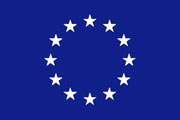Linear
"Flemish households test smart appliances"
Project Summary
The Linear (‘Local Intelligent Network and Energy Active Regions’) project is a large-scale research and demonstration project aiming to activate domestic demand response to facilitate the integration of distributed (renewable) energy resources in the low voltage grid.
The project not only aims at developing the needed technical solutions to realise a technological breakthrough of domestic demand response, but also looks at possible future energy market structures and potential business cases to validate the flexibility available at the consumers’ premises. Both the technical solutions as well as the business cases are implemented in a pilot engaging about 240 Flemish families.
What sets this project apart from other Smart Grid projects?
For each group a different reward system will be used. The ‘Time of use’ group gains money by shifting electricity demand according to the tariffs, while the "Flexibility” group is compensated according to the hours of flexibility given.
Another strength of the project is that the technologies deployed at field trial participants were developed in such a way that they never impinged on the comfort level of energy practices and end users always retained ultimate control of their appliances.
By involving different energy market players within the project, Linear managed to look at the value of flexibility from the viewpoint of energy markets, but also from the grid perspective. Four business cases for domestic DR are therefore explored during the project.
Two of these cases are in the interest of the retailer / balance responsible partner (BRP), i.e. "portfolio management” (optimization of electricity purchases and sales on the day ahead market by means of DR) and "wind balancing” (reducing the intraday deviations between predicted and measured wind power generation by means of DR). The DSO is the party concerned in the other two cases, i.e. "LV transformer load” (avoiding peak loads on low voltage transformers by means of DR) and "LV feeder voltage profile” (managing the voltage profile of low voltage feeders by means of DR).
2 groups of families - 2 remuneration models tested - Flexibility <-> Time of Use 
What happened?
Further information / Contact
Download Version (PDF, 506KB)
Download
Upcoming events
Supporters


